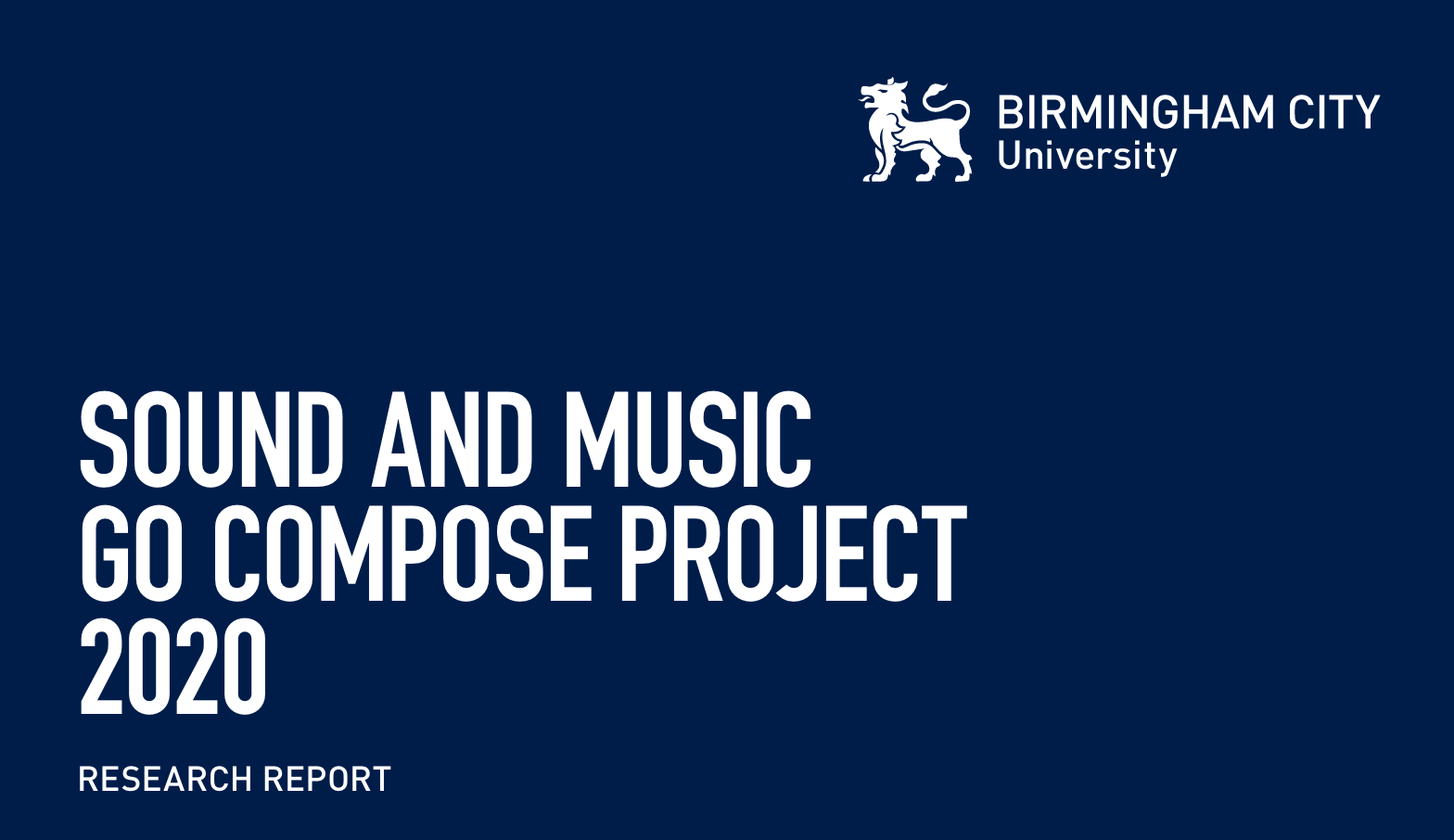Today, Sound and Music welcomes the 2021 publication of Birmingham City University’s (BCU) independent evaluation of Go Compose, a 2-year long project led by Sound and Music and supported by Youth Music.
Since 2019, the Go Compose programme has supported over 160 young people facing barriers to participation to work with professional composers and educators to create their own music, develop their compositional skills, individual musical expression and confidence. These young people were based in Liverpool, Kirklees and East London, and created music for digital audio workstations as well as for a wide variety of instruments.
Drawing on data gathered throughout the project, the evaluation report identifies the structural barriers many young composers face, the special ingredients that lead to good practice in facilitating composing activity and – most importantly – the positive impact having the opportunity to compose can have on young people.
Judith Robinson, Head of Education at Sound and Music, said:
“Provision for young people to develop composing is crucial. It is Sound and Music’s aspiration to bring this need into the public arena and ensure policymakers, schools and music organisations do all they can to facilitate composing for young people.”
In the report, researchers highlight case studies of young people whose lives were changed through opportunities to compose. Since the Covid-19 pandemic and ensuing mental health crisis, the need to create and have a musical voice is now more important than ever.
Changes observed in the evaluation include:
- An improvement in the quality of life for individual young people
- An increase in confidence amongst participants demonstrated by progressing on to other projects and engaging in Further Education for the first time
- The development of peer support and collaboration between participants
Read the full Go Compose report here
The Go Compose report also identifies significant barriers to young people’s participation that transcend their personal circumstances, echoing those found in Sound and Music’s 2019 #CanCompose report. These include a lack of opportunities to learn and progress as composers, the need for more composing-specific training for music educators, and the need for greater emphasis on composing within music education in and out of schools.
Susanna Eastburn MBE, Chief Executive of Sound and Music, said:
“The lack of opportunities and signposting blocks young people from progressing their talent and often isolates them from other young composers. Some music education hubs are doing great work to address this, but the offer remains a postcode lottery… making our culture poorer as a result.”
With the National Plan for Music Education currently being renewed, Sound and Music is calling on the government to make composing a core part of every child and young person’s high-quality music education, with opportunities to develop as composers as far as their interest and talents allow, both in and beyond school.
We are calling for:
- The National Plan for Music Education to acknowledge the role of composing alongside learning to play an instrument and singing as an important part of music education
- Make composing a core role for music education hubs, creating more opportunities beyond school provision at a local level for any young person wishing to develop as a composer
- Make opportunities to learn to compose, more relevant and diverse, including through use of music technology and expanding the range of genres to include electronic and other non-notated forms of music creation.
- Creative music projects can be coordinated and initiated by music education hubs, drawing on all local music and youth providers to create a joined up network
- Ensure there is a skilled workforce available to deliver composing activity, through embedding it in initial training as well as in continuing professional development


